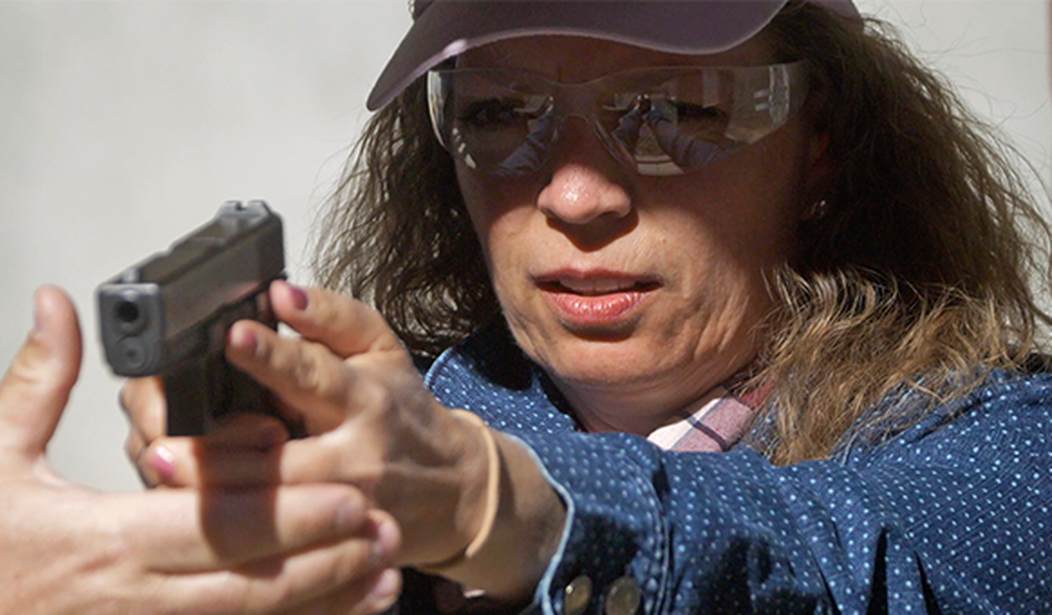School districts with staff who’ve volunteered (as well as been vetted and trained) to carry a firearm to serve as a first line of defense in case of a targeted attack on school grounds aren’t unusual or uncommon in some states, but the gun control lobby absolutely despises the idea. Groups like Everytown for Gun Safety have even teamed up with parents to challenge the legality of the policies, which led to lawmakers in Ohio having to go back and redo state law after the state Supreme Court ruled that teachers and staff could not have a gun on campus unless they’d undertaken the more than 700 hours of training necessary to become a certified peace officer in the state.
Now the New York Times has discovered what’s going on in Ohio, labeling the new law “contentious” and echoing the complaints of the gun control lobby.
The strategy is fiercely opposed by Democrats, police groups, teachers’ unions and gun control advocates, who say that concealed carry programs in schools — far from solving the problem — will only create more risk. Past polling has shown that the vast majority of teachers do not want to be armed.
The law in Ohio has been especially contentious because it requires no more than 24 hours of training, along with eight hours of recertification annually.
“That, to us, is just outrageous,” said Michael Weinman, director of government affairs for the Fraternal Order of Police of Ohio, the state’s largest law enforcement organization. By comparison, police officers in the state undergo more than 700 hours of training. And school resource officers — police assigned to campuses — must complete an additional 40 hours.
Armed school staff aren’t police officers, however. Why should they need to undergo training on arrest techniques, defensive driving, suspect interviews, or handling crime scenes? These school employees don’t have the authority to arrest students and aren’t tasked with any special responsibilities other than responding if necessary to a murderer on the school grounds.
The Times recently spent a weekend in Ohio with teachers and staff members taking part in the training offered by FASTER Saves Lives, which has taught thousands of educators in recent years; not only how to respond tactically to an active shooter on campus, but how to de-escalate the situation if possible, perform first aid, and other situation-specific training. And while the paper made sure to include plenty of criticism of the program from academics and gun control activists, they also spoke to several of the teachers taking part, each of whom dispelled the common claim by anti-gun activists that no educator would ever willingly choose to carry a gun to protect the students in their care.
Jennifer, a school custodian who volunteers as an instructor with FASTER, said that in four years of carrying in her school, she had never needed her weapon. She doesn’t doubt her ability, she said, but believes the hardest part would be using her firearm on a student. She recalled a time when a middle schooler she had been mentoring threatened to bring a gun to school.
“My heart just dropped,” she said, adding that administrators were able to intervene.
For Mandi, the decision to be armed in the classroom seemed like a better solution than wasp spray or a tube sock.
She has worked through logistical details, like how she will carry her pistol: inside her waistband, in a holster meant to prevent accidental discharge. She did handstands, to check that her gun remained secure. When students come for hugs, she plans to turn her hip to direct them to the other side of her body.
To keep up her training, she goes to the gun range each week, she said.
And while she acknowledged other, important policies could help prevent school shootings, she did not feel she could afford to wait for change.
“We’ve got to help the kids right now,” she said.
I don’t think armed school staff are the only tactic that should be deployed to help keep kids safe, but for many smaller and more rural districts that can’t place a school resource officer on every campus the idea makes a lot of sense. Researchers at Purdue University’s Homeland Security Institute have found that the presence of a school resource officer and a small percentage of armed school staff is the fastest and most effective way to stop a targeted attack on a school campus and save as many lives as possible. With gun control groups like Everytown adamantly opposed to this strategy, however, ensuring an immediate response to a targeted attack is going to be an uphill battle, particularly in the blue states where they and their anti-gun allies in legislatures hold sway.










Join the conversation as a VIP Member